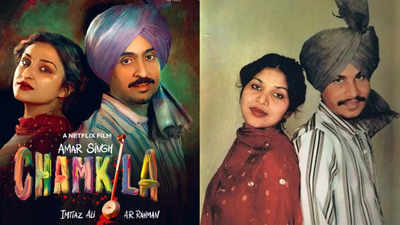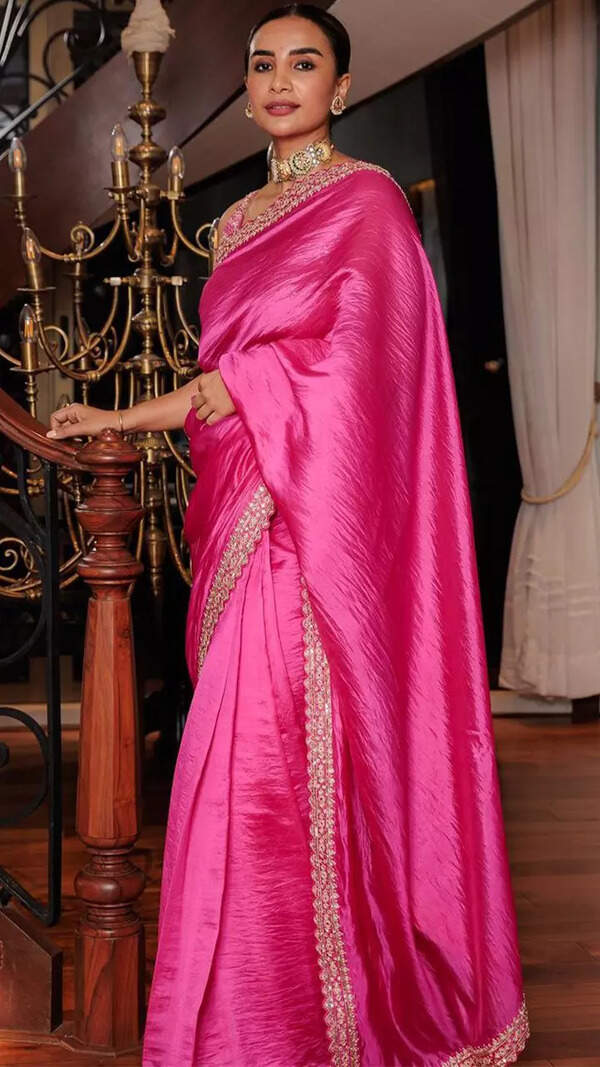- News
- entertainment
- hindi
- bollywood
- Imtiaz Ali reveals why he did not stress Chamkila's caste in 'Amar Singh Chamkila': 'I wanted him to be free of something he was not free of'
Trending
Imtiaz Ali reveals why he did not stress Chamkila's caste in 'Amar Singh Chamkila': 'I wanted him to be free of something he was not free of'
Imtiaz Ali's acclaimed film 'Amar Singh Chamkila,' starring Diljit Dosanjh, avoids Chamkila’s Dalit identity to focus on talent and music over Punjab's caste constraints. Imtiaz emphasizes musical achievements, self-repressing humor, and the love story between Chamkila and his music, arguing that addressing caste-related issues confines the musician’s story within social constraints.

Imtiaz Ali and Diljit Dosanjh collaborated on the recent film 'Amar Singh Chamkila,' which received critical acclaim for its plot and casting. The film is a biopic of Punjabi singer Chamkila. In a recent chat, the director addressed the criticism regarding the film not mentioning Chamkila’s caste. Imtiaz emphasized that he wanted Chamkila to be free of something that he was not free from in his life.
Imtiaz asked whether being a Dalit made Chamkila unique or if it was his talent. He questioned whether highlighting the musician's Dalit identity inadvertently perpetuates the caste system and confines the musician to the same social constraints he faced. The speaker emphasized his desire to narrate the musician's story without the overshadowing influence of caste. He pointed out that many musicians in Punjab at the time were also Dalit, prompting him to focus on the unique qualities and achievements that distinguished this particular musician, rather than solely on his caste background.
The director stated that repeatedly highlighting the musician's Dalit identity and the caste-related issues in Punjab is not the focus of his story. He believes that doing so does not serve society positively. Instead, he insists that his film is primarily a love story between the musician and his music, focusing on musical performance. By treating it this way, the narrative moves beyond the confines of caste-related issues.
Imtiaz asked whether being a Dalit made Chamkila unique or if it was his talent. He questioned whether highlighting the musician's Dalit identity inadvertently perpetuates the caste system and confines the musician to the same social constraints he faced. The speaker emphasized his desire to narrate the musician's story without the overshadowing influence of caste. He pointed out that many musicians in Punjab at the time were also Dalit, prompting him to focus on the unique qualities and achievements that distinguished this particular musician, rather than solely on his caste background.
Mirzapur 3 Cast Reveals Weird Questions They Got Asked In Public
The director stated that repeatedly highlighting the musician's Dalit identity and the caste-related issues in Punjab is not the focus of his story. He believes that doing so does not serve society positively. Instead, he insists that his film is primarily a love story between the musician and his music, focusing on musical performance. By treating it this way, the narrative moves beyond the confines of caste-related issues.
He concluded by saying that Chamkila also made jokes about himself, which is a kind of self-repression. If he represented this, he would have to delve into that mentality. He didn’t want to take that journey. He is aware of the criticism and thought of addressing it.
End of Article
FOLLOW US ON SOCIAL MEDIA










